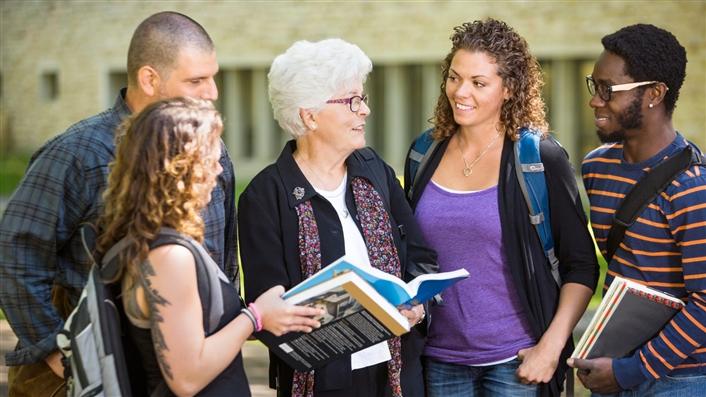Capturing student voices with new technologies can enhance teaching effectiveness.

Informed teaching invites student voices and perspectives into faculty reflection on and evolution of teaching practice. Because end-of-term surveys often come too late to help students today in this class, more institutions are adding early and midterm student surveys. My former institution, Mercy College, isn't the first to broadly deploy early-term student surveys and evaluations for courses. In fact, the James McCormick Family Teaching Excellence Institute at Cornell University's College of Engineering generously shared one iteration of its online branch logic survey with Mercy, giving permission to modify as desired. Oh the data it yields for instructors, teaching and learning staff, and the faculty!
The Mercy College initiative gathers formative feedback from students in a process called Pulse on Learning (PoL). For several semesters, the interest among faculty in this kind of feedback on their learning environments had gradually risen. In the early years, some of the most confident teachers stepped forward for the pilot. They wanted to hear the student voice in ways they previously hadn't. (Some of them offer reflections in this short video entitled: Using Student Feedback: Reach Out, Reflect, Revise.)
Faculty and administrators agreed that the survey results would be used only for faculty development purposes, stopping short of being used for decision-making in personnel actions. Standing by this stipulation and using the process as a formative experience has shown to be critical as the program went from the pilot stage to scale in 2017–18. (Faculty members may opt in and opt out at will.) We found that during this period, partnerships with the Faculty Senate and committees proved most beneficial for critical input and modifications. PoL informs faculty about areas ripe for learning improvements, and it has emerged as a personalized yet macro-level, scalable intervention.
Surveys are conducted at the third or fourth week in a 15-week term. In the first part of the survey—with the use of the branch analytics design—students drill down to what they perceive to be learning bottlenecks in the course. The next prompt offers them options to drill down further with common problematic situations for learning. We collect both quantitative and qualitative self-reported information from both undergraduate and graduate learners.
Faculty participants receive reports within 48 hours of the survey's close. The information is often a mix of praise for what's going well in a class and concrete indications of what students may be struggling with. That specificity is the secret sauce.
Each semester, a subset of faculty participants meet with the teaching and learning staff to analyze the data in the larger context of the faculty member's understanding of what is occurring in the learning environment. Together, they reflect and revise instructional plans and materials to aid the learning of their current students. They often go for the low-hanging fruit to immediately alleviate the learning bottlenecks that have been revealed. A further subset of faculty keep working to perform a deeper instructional redesign with the staff.
PoL informs faculty promptly where they can consider making meaningful adjustments to their teaching. It's contributing to a revitalization of inspired instruction for many faculty participants because they have a much better understanding of the student experience in the learning environment. The exciting thing is that the Teaching and Learning Center team has another data stream on student learning, one that is actionable when it matters most—mid-semester, well before it's too late for students to succeed in the course.
Victoria (Tori) Mondelli is Founding Director of the Teaching for Learning Center at the University of Missouri, effective September 4, 2018. From 2012 to 2018, she served as Executive Director of the Office for Teaching Excellence and Engaged Learning at Mercy College.
© 2018 Victoria (Tori) Mondelli. The text of this work is licensed under a Creative Commons BY-NC 4.0 International License.
